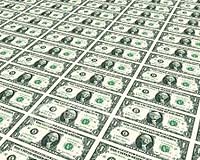| . |  |
. |
Beijing (AFP) Nov 16, 2010 China's central bank governor on Tuesday voiced concern at problems such as speculative fund inflows into the economy and rising inflation, leading the stock market to fall four percent. The comments added to a chorus of criticism by Chinese officials that monetary stimulus policies taken by the United States might lead to damaging fund flows and trigger inflation. "The economic recovery in developed nations is slowing, resulting in continuously loose monetary conditions," Zhou said at a financial forum in Beijing, according to Dow Jones Newswires. "Some emerging markets are facing certain pressure of capital inflows." "China also faces some problems in its economy, such as the need to continue to boost residents' income and improve the structure of the economy, while all industries need to pay attention to rising price pressures," he said. The benchmark Shanghai Composite Index closed down 3.98 percent at 2,894.54, its lowest closing level in about a month. On Friday it plunged more than five percent following data showing that consumer prices rose 4.4 percent in October. Analysts said investors were selling off amid concerns about possible further monetary tightening, as Zhou's comments fuelled expectations of another interest rate hike. "It could be Zhou's comments giving markets the jitters though we earlier expected the market to consolidate around the 2,900 level after the strong gains in recent weeks," said Zhang Gang, an analyst from Central China Securities. China and other emerging economies worry that much of the new US money will flood their financial markets, as traders seek higher non-dollar returns. Speculative "hot money" inflows are considered risky because they often flow out of an economy again on the first sign of weakness, exacerbating any problems. Excessive inflows of funds complicate Beijing's efforts to mop up the liquidity that is pushing up domestic asset prices and fuelling inflation. The latter has accelerated to its fastest pace in almost two years. China announced last month its first rate hike since 2007, which analysts said laid bare official fears over surging prices.
Share This Article With Planet Earth
Related Links The Economy
 Nobel laureate backs US 'easy money' policy
Nobel laureate backs US 'easy money' policyMadrid (AFP) Nov 14, 2010 The US Federal Reserve's move to ease monetary policy, which has been blasted by China and Germany, is needed to fix global trade imbalances, Nobel laureate Eric Maskin said in an interview published Sunday in Spain. "This plan can weaken the dollar and make American exports cheaper; and Chinese and Germany imports to the United States more expensive. It is understandable that China and Germ ... read more |
|
| The content herein, unless otherwise known to be public domain, are Copyright 1995-2010 - SpaceDaily. AFP and UPI Wire Stories are copyright Agence France-Presse and United Press International. ESA Portal Reports are copyright European Space Agency. All NASA sourced material is public domain. Additional copyrights may apply in whole or part to other bona fide parties. Advertising does not imply endorsement,agreement or approval of any opinions, statements or information provided by SpaceDaily on any Web page published or hosted by SpaceDaily. Privacy Statement |